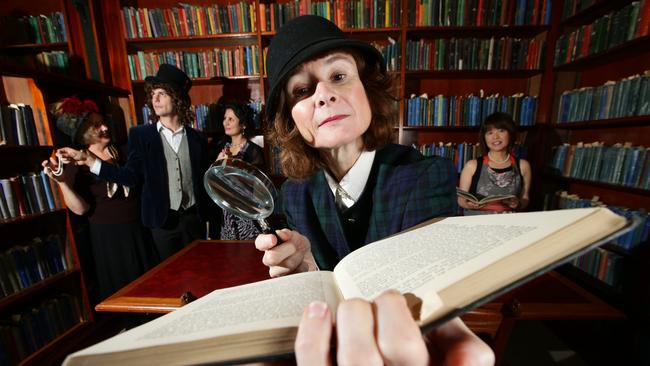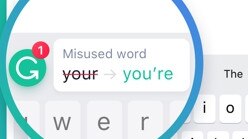Grammar detective weighs in on SACE blunder after they defended allowing online literacy tool Grammarly
The SACE board claims English exam students who used an app to check their answers weren’t advantaged – but Adelaide’s grammar detective believes otherwise.
SA News
Don't miss out on the headlines from SA News. Followed categories will be added to My News.
Adelaide’s self-proclaimed grammar detective has weighed in on a technical error that allowed senior students to access a literacy tool during exams.
On Monday, it emerged a new computer program used for this month’s SACE exams enabled commercial app Grammarly to be accessed during last week’s English Literary Studies — one of 15 exams caught up in the controversy.
Dr Julia Miller is the mastermind behind the English For Uni website, a free community resource that uses fun short films to explain grammatical concepts.
Dr Miller said all students should have access to the same tools while sitting their exam to ensure an equitable playing field for all involved.
“If one student had access to a dictionary then all students should have access to a dictionary,” she said.
“While the content would have been their original work, using Grammarly would still have an impact on how the marker would interpret the content.”
Dr Miller said grammar may make up only a small portion of the exam rubric, but markers could be “swayed” when looking at someone’s work with “better grammar and writing”.

It comes after the SACE acting chief executive Michaela Bensley defended the technical error on ABC Radio on Tuesday.
She said the tool was supposed to be blocked, but insisted it did not provide an unfair advantage to students.
“Examiners are practised in not focusing on those aspects, because that’s not the core of it,” she told ABC Radio Adelaide.
“Our SACE exams are meant to focus on those higher-order uses of language and skills, not spelling and punctuation.
“We’ve had the ability for students to take in dictionaries to exams for some time, and spellcheck within online exams.”
It is understood the tool is still accessible to students sitting exams during the remainder of the 2022 assessment period.
“We’ve let everyone know it is able to be downloaded, we don’t have a position as to whether they use Grammarly or not,” she said.
“What’s most important is that students focus on their own ability to communicate key points in their subject matter and really demonstrate to us their learning that they’ve done all year.”
Opposition education spokesman John Gardner said Education Minister Blair Boyer should demand the SACE board act on their mistake.
“I was deeply disappointed to learn about the use of the app in the English exam by some students, and then was very surprised to hear comments from the SACE board appearing to condone the practice,” he said.
“The SACE board should take steps immediately to put a stop to this unfair practice.”
Education Minister Blair Boyer told The Advertiser SACE would not be removing the access to Grammarly throughout this exam period.
“Access to Grammarly should not have been allowed and SACE has acted to ensure no student will be disadvantaged,” he said.
“To fix this issue at this time would require changes to all student devices, which is not practical in a short period.
“Spelling and grammar are not specifically assessed in the remaining exams.”
Access to external websites or apps were previously blocked by the SACE board, which updated its software for this month’s 15 online year 12 exams.
It is unclear if the version of Grammarly accessible to students is the free or paid tool, with the paid tool offering additional language analysis and support including fluency and plagiarism detection.

Australian Association for Teaching of English president Alison Robertson said it was “somewhat disingenuous to suggest that it’s not a problem”.
“I agree that it (spelling and grammar) is one criteria … but in the end it is a very clear performance standard of the fluency and accuracy of students’ writing,” she said.
“If I’m looking at two pieces of work and one is riddled with errors, and the other isn’t, I’m going to give high marks to the one that is error-free.”
Ms Robertson went on to say that because of specific criteria, she wasn’t concerned about the remaining exams in this period, but the issue should be rectified in 2023.
“We have to acknowledge English as a subject is about clear and precise expression … you do actually have to have an understanding of how language works and clarity and provision to be happening all the time, not just when you’re on a laptop with the internet,” she said.
English teachers have taken to social media forums to accuse the SACE Board of giving an unfair advantage to students with Grammarly installed on their devices over those without the software.
Ms Bensley previously denied claims by teachers that the integrity of the 15 online SACE exams had been compromised.
“The integrity of all electronic examinations is assured,” she said.
“No student has done anything wrong, there has been no breach of rules, and no student will be advantaged or disadvantaged.”




